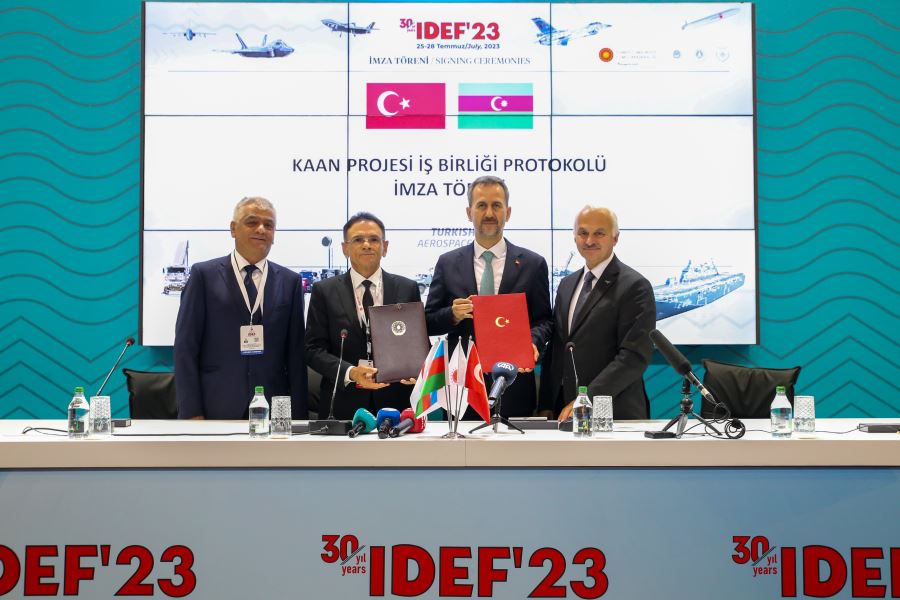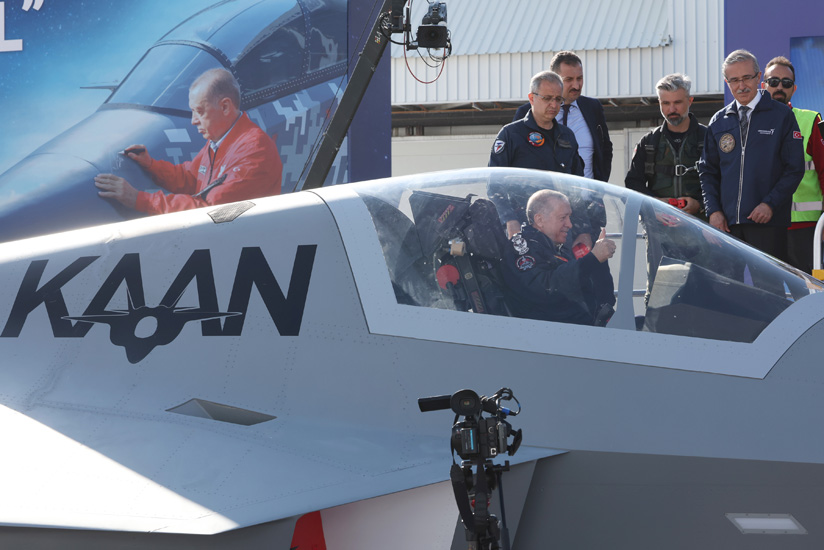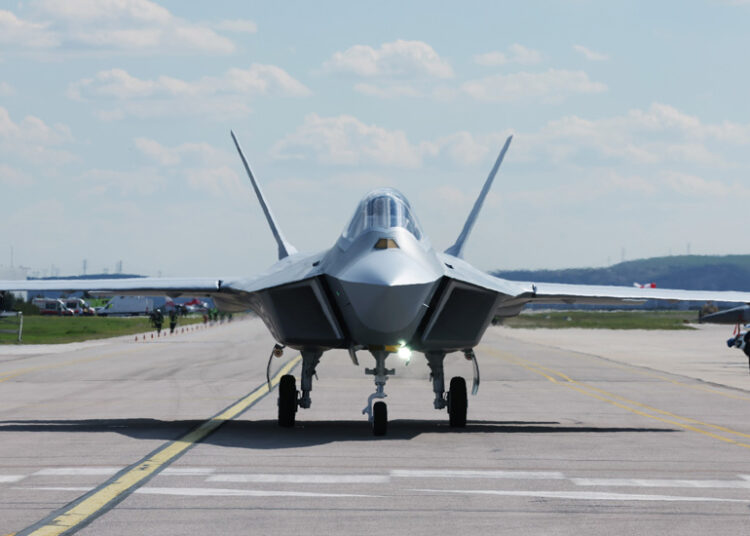Levent Kenez/Stockholm
A cooperation protocol was signed between Turkey and Azerbaijan last week to facilitate joint efforts in the various production stages of KAAN, Turkey’s national and indigenous fighter jet designed for the Turkish Air Force.
The Turkish side also aims to secure financial support for the project through Azerbaijan’s participation, Nordic Monitor has learned.
The National Fighter Jet Development Collaboration signing ceremony was held at the 16th International Defense Industry Fair, IDEF’23, with the participation of officials from the Presidency of the Defense Industry (SSB), Azerbaijan’s Ministry of Defense and Turkish Aerospace Industries (TUSAŞ, or TAI).
According to the official announcement, the primary aim of the protocol is to establish the fundamental principles and procedures for collaboration between Turkey and Azerbaijan, with a specific focus on joint production activities, including ongoing efforts for the development of KAAN.

The protocol also aims to identify and assess Azerbaijan’s capabilities within the scope of the KAAN project, make preparations for production in suitable facilities and with companies that are deemed appropriate, enhance production capabilities and promote experience sharing.
As part of the protocol Azerbaijan will also contribute to the project by sending personnel numbering 200 to Turkey to actively participate in the KAAN project.
During his visit to IDEF, Turkish President Recep Tayyip Erdogan described the protocol with Azerbaijan as a new symbol of solidarity between the two countries. He also mentioned that KAAN’s first test flight would take place by the end of 2023.
KAAN was initially introduced to the public during Erdogan’s re-election campaign in May, when it was showcased and performed a taxiing test on the runway. The opposition at the time criticized the staging of a ceremony for a non-flying aircraft, alleging that it was a political tactic aimed at garnering support during election. They further claim that the KAAN project is not advancing as quickly as the government has portrayed, with financial challenges also being raised as issues.

The TAI KAAN, also known as TF-X or Turkish Fighter, referred to as Milli Muharip Uçak (National Combat Aircraft) in Turkish and abbreviated MMU, is an advanced, twin-engine, stealth, all-weather air superiority fighter currently under development by TAI, with British BAE Systems serving as a sub-contractor. The primary purposes of the KAAN are to replace the existing and aging F-16 aircraft in service with the Turkish Air Force and to be available for export to other countries.
The first delivery of KAAN to the Turkish Air Force is planned for 2028, and efforts to find a suitable engine are still underway. The current prototypes are equipped with American-made F110 engines, and these engines will continue to be used for the initial production of the first 20-25 units of KAAN.
As of now, two companies have expressed interest in producing a specialized engine for KAAN. The British Rolls-Royce company has formed a partnership with Turkey’s Kale Group to join the race, while Ukrainian company Ivchenko Progress has also submitted an offer for the aircraft engine.
In a statement to the Turkish media in May, TAI President Temel Kotil said TAI is planning to deliver 20 units of KAAN Block-10 aircraft to the Turkish Air Force by the year 2028. He also stated that starting in 2029, production is expected to be two jets per month. Kotil mentioned that while it is not certain, they anticipate the sales price of the aircraft to be around $100 million. However, he did not share any details regarding the overall cost of the project.
Meanwhile, during his speech at IDEF, President Erdoğan highlighted that Turkey has achieved a success story in a strategic and challenging field like defense and emphasized that it serves as an inspiration for other countries. According to Erdoğan, Turkey’s success in the defense sector has broken the long-standing domination of certain powers over weapons technologies, leading to some ill feelings directed towards Turkey from those who used to control the sector. He also criticized the opposition parties that act under the influence of these powers and throw mud at Turkey’s defense industry initiatives.












